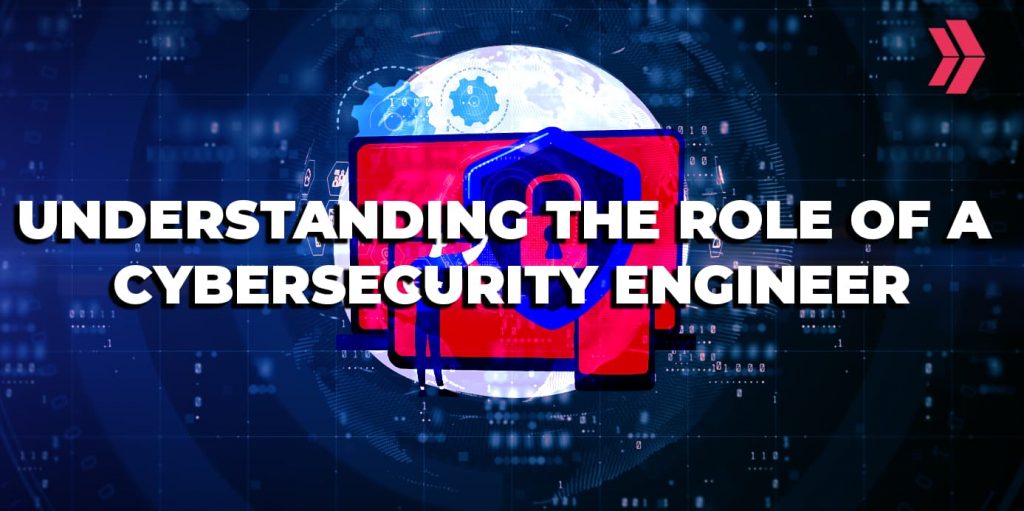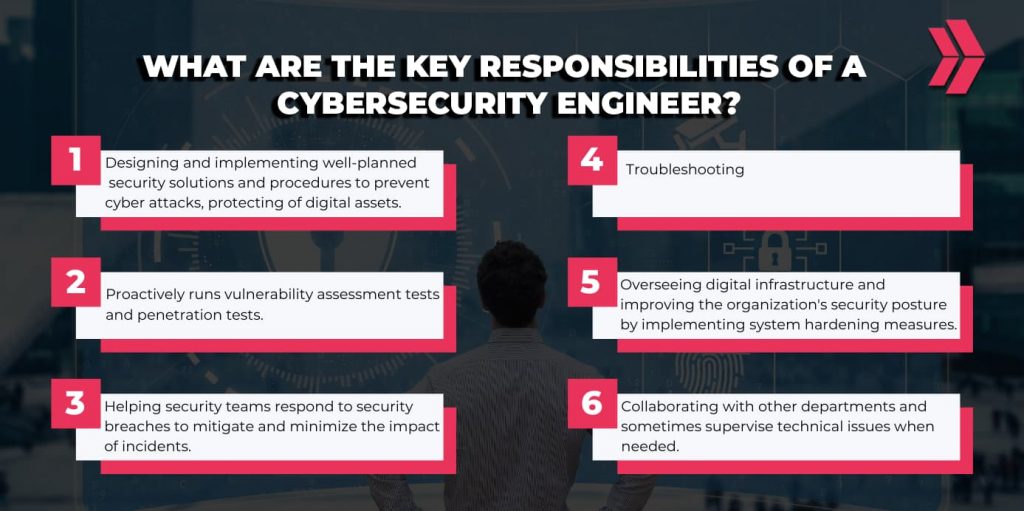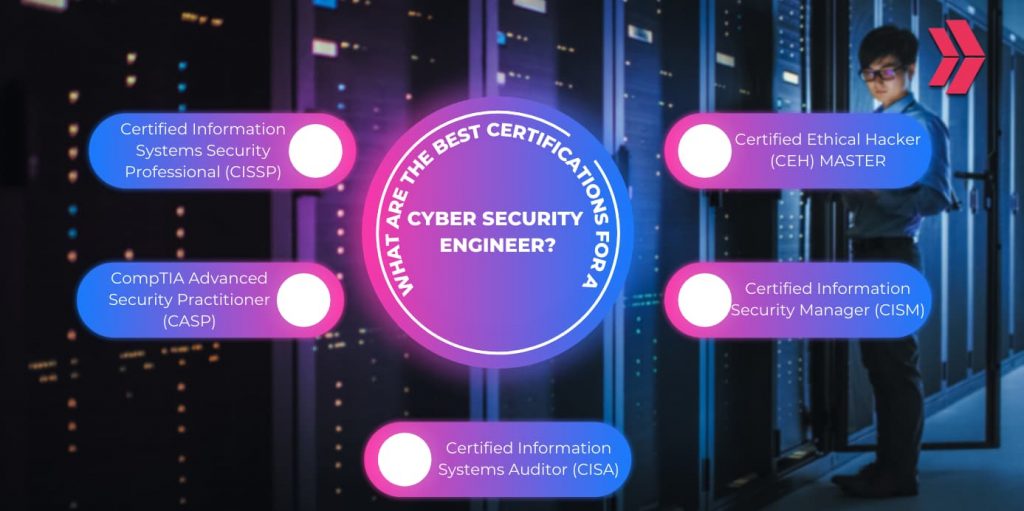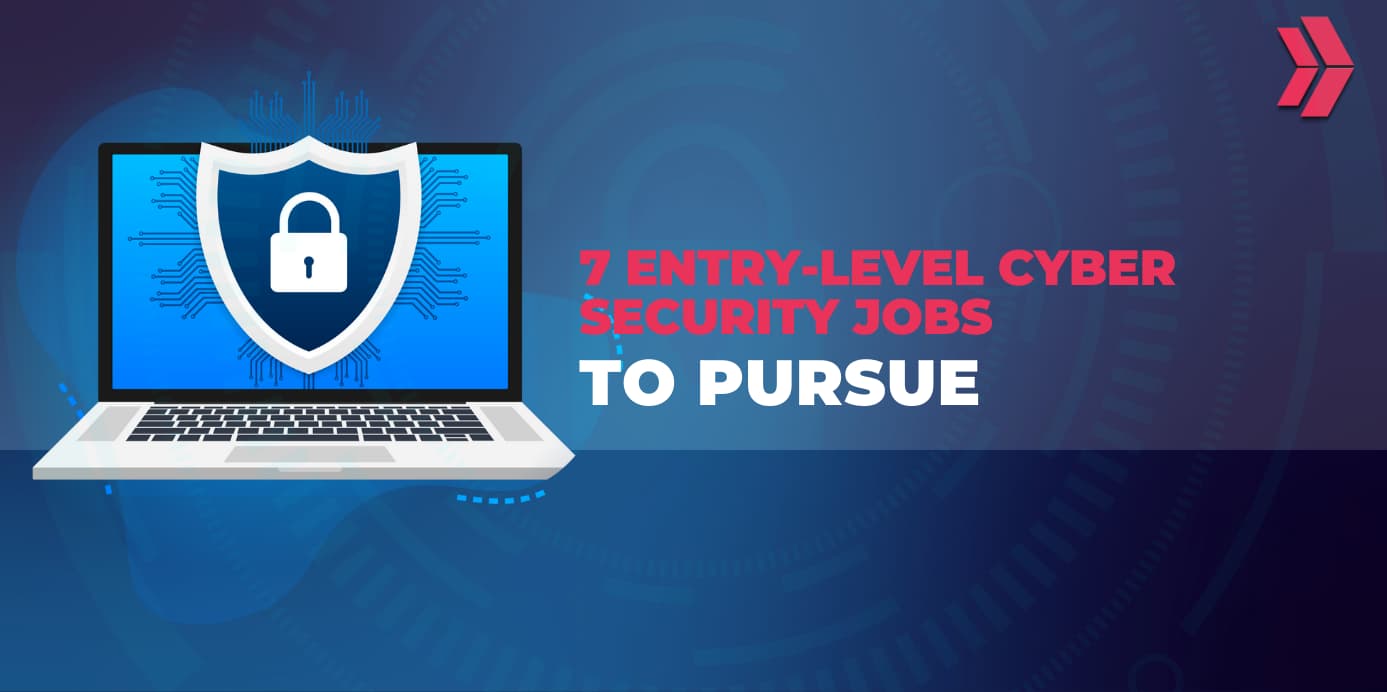Cybersecurity engineers are the backbone of security efforts in designing, implementing, and maintaining security measures to protect sensitive information, systems, and networks. As a result, the importance of cybersecurity engineers in today’s world has gained more credit.

Cybercrime is rapidly increasing and extending across national boundaries. According to Cybersecurity Ventures, the cost of cybercrimes is estimated to reach 8 trillion USD globally in 2023 and is also projected to escalate to 10.5 trillion dollars by 2025. These statistics emphasize the growing demand for skilled professionals, specifically cybersecurity engineers, to defend against cyber threats.
In this article, we will delve into the pivotal role of cybersecurity engineers, exploring their responsibilities, skills, and the ever-evolving nature of their work.
What is a Cybersecurity Engineer?
A cybersecurity engineer is an IT professional who mainly designs and implements effective security solutions to protect sensitive information, systems, and networks from unauthorized access or possible cyber threats. A cybersecurity engineer -also known as a network security engineer, data security engineer, or information security engineer- is indispensable in ensuring digital assets’ confidentiality, integrity, and availability.
What are the Key Responsibilities of a Cybersecurity Engineer?
The key responsibilities of a cybersecurity engineer can vary depending on the organization and specific job requirements.

Here are 6 common responsibilities:
- Security engineers are mainly responsible for designing and implementing well-planned security solutions and procedures to prevent cyber attacks. The protection of digital assets is the priority of this job role.
- Additionally, a network security engineer proactively runs vulnerability assessment tests and penetration tests to identify possible cybersecurity threats and vulnerabilities and take necessary measures to minimize the attack surface.
- When an attack occurs, an engineer helps security teams respond to security breaches to mitigate and minimize the impact of incidents. Afterward, reporting to managerial roles is integral to the job description.
- In addition to taking necessary security measures, troubleshooting is essential for the roles and responsibilities of a cybersecurity engineer.
- Cybersecurity engineers oversee the digital infrastructure and improve the organization’s security posture by implementing system-hardening measures. They also always prepare the organization and develop disaster recovery plans and courses of action in an emergency.
- Besides, data security engineers collaborate with other departments and sometimes supervise technical issues when needed.
What Are The Skills Of A Cybersecurity Engineer?
Skills required for a cybersecurity engineer vary from one organization to another. However, there are commonly acknowledged skills to excel in the field. In this context, some essential skills that an engineer should possess will be discussed in terms of technical and soft skills.

What Technical Skills Are Needed For Cybersecurity Engineers?
Compared to a cybersecurity analyst, an engineer position requires 5 technical skills as follows:
Operating Systems
Understanding the nature of Operating Systems (OS) is crucial to becoming a successful engineer. Threat offenders use or exploit different operating systems like Linux, Windows, and macOS, and engineers should be familiar with these to prevent possible attacks and system hardening.
Database Concepts
Cybersecurity is about data protection. To do so, cybersecurity engineers first should understand how databases store data and the data retrieval process to keep information secure.
Networking
Cybersecurity engineers should have extensive knowledge of security protocols and network security. In addition, they should deeply understand network topology, infrastructure, and architecture work.
Coding Languages
Familiarity with coding languages like Ruby, Java, Python, C#, or C++ allows security engineers to review codes and identify weaknesses. Code reviews enable us to fix vulnerabilities and implement cybersecurity best practices.
Penetration Testing/Vulnerability Assessment
Cybersecurity engineers benefit from specialized software tools like Nmap, Burp Suite, Nessus, and Metasploit or use manual testing techniques to identify vulnerabilities and improve overall security posture.
What Soft Skills Are Needed For Cybersecurity Engineers?
In addition to technical skills, soft skills contribute positively to more robust security measures for information security engineers as follows:
Analytical Thinking
Analytical thinking and problem-solving skills are essential for cybersecurity engineers. They break down problems into smaller parts for a better understanding and detailed analysis. Engineers with a critical mindset can read cybercriminal threats and protect digital assets successfully.
Continuous Learning
Cybersecurity is an ever-changing field. The changing security needs require engineers to keep up-to-date with the latest threats and attack vectors to develop better security solutions.
Detail-oriented
Engineers should be careful and detail-oriented to identify suspicious activities, anomalies, and possible threats. The devil is in the details, and ignored minor points may snowball into more significant problems. Detail-oriented engineers enhance the security posture of the organization.
Communication
Cybersecurity engineers should have good communication skills to interact and collaborate with other team members and departments, sometimes even with non-technical audiences. Written And oral communication skills are equally crucial for a quick and accurate mutual understanding in this role.
Ethical Values
A solid ethical mindset sets the ground rules for behaviors and choices. Cybersecurity engineers should comply with ethical and legal standards. Ethical practices sustain professionalism, trust, respect, and accountability in the work environment; therefore, engineers should possess an ethical mindset.
What Training Is Needed For A Cyber Security Engineer?
There are three options for cybersecurity engineer training. First, you may choose traditional colleges, bootcamps, or self-teaching to advance your cyber career.
A bachelor’s degree in information technology, computer science, or related fields is a force multiplier for a bright career. Colleges give the foundational technical knowledge that an engineer may require.
Alternatively, a cybersecurity bootcamp offers job-focused curricula in a relatively short time. Moreover, bootcamps only give information necessary in the field as theoretical knowledge and prepare the target group for the real world with hands-on experience.
As another option, the self-study method allows users to learn at their own pace without direct supervision. Instead, the learner determines and controls the cybersecurity course content, time, and methodology.
How to Gain Experience as a Cybersecurity Engineer?
Gaining experience as a cybersecurity engineer requires a combination of education, practical training, and real-world exposure to security challenges. Hands-on experience is different from theoretical knowledge. Simulating real-world scenarios or working on projects in the field would contribute invaluable expertise and build a strong skillset as a cybersecurity engineer.
Education and certifications are essential indicators validating your competency. However, cybersecurity engineers who combine education and certification with practical experience would climb the ladder of success in the market.
What Are The Best Certifications For A Cyber Security Engineer?
Some of the best certifications for Cybersecurity Engineers are as follows:
- Certified Information Systems Security Professional (CISSP),
- CompTIA Advanced Security Practitioner (CASP),
- Certified Ethical Hacker (CEH) MASTER,
- Certified Information Security Manager (CISM),
- Certified Information Systems Auditor (CISA).

You can take a look at the blog post titled “Cybersecurity Certifications: A Guide To Understand” for detailed information about cybersecurity certifications.
The Future of Cybersecurity Engineering
Cybersecurity has gained more importance in today’s digital age since organizations desperately want to keep digital assets secure. Consequently, the demand for skilled cybersecurity engineers is skyrocketing. In short, the future is promising.
Cyber engineers have competitive salaries, and pay growth is expected to increase gradually. For instance, CyberSeek estimates a 136% increase in Cloud security, and 5-Year Projected Growth for container security is 156%.
People are also concerned about whether artificial intelligence (AI) could replace cybersecurity engineers. AI is beneficial in the detection and response processes to cyber threats. However, it cannot replace the human element at all. Combining both serves the best results for a better and more secure environment.
In conclusion, cybersecurity engineers are one of the most sought-after cybersecurity roles essential in protecting sensitive digital assets and defending networks against cyber attacks. They have extensive knowledge and skills in designing and implementing security measures to enhance the organization’s security posture. Engineers who combine formal training, required certifications, and practical experience would boost their careers. Cybersecurity engineering presents a challenging but promising professional career path with a future filled with opportunities.
Frequently Asked Questions
Do cybersecurity engineers code?
Cybersecurity engineers should be familiar with the logic behind coding to analyze activities and develop practical solutions. Although engineers are not responsible for coding development, coding knowledge will be a plus. In addition, engineers must understand and use scripting to carry out daily activities.
Where do cybersecurity engineers work?
Cybersecurity engineers work in finance, healthcare, technology, or other industries.
Is cybersecurity engineering hard?
Cybersecurity engineering is among the challenging cybersecurity careers path and requires a lot of dedication to be a cybersecurity specialist. Cyber attacks constantly evolve, and security engineers should have a solid technical background and meet ever-changing security needs. As a result, cybersecurity engineering is a stressful job but also highly rewarding.
What is the difference between a cybersecurity engineer and a cybersecurity analyst?
Both cybersecurity analysts and engineers are putting all efforts into protecting systems and networks from cyber-attacks. But there are some differences between cybersecurity analysts vs engineers. For example, a cybersecurity analyst mainly monitors and analyzes system logs, security incidents, and events, while a cybersecurity engineer designs and implements security measures.
How long does it take to become a cybersecurity engineer?
The primary factor that affects the timeline is the type of education. For example, choosing a traditional four-year college degree builds a solid foundation. On the other hand, bootcamps provide field-oriented cybersecurity engineer programs in a relatively short time. Moreover, certifications and experience are other elements affecting the duration.
What are the main challenges faced by cybersecurity engineers?
Engineers face many challenges daily. For instance, the ever-evolving nature of cyber threats makes it difficult to take adequate action. Also, complex environments increase the attack surface. Similarly, the need for coordination with other units or departments complicates the process. Additionally, they should be up to date all the time.
Can I transition into cybersecurity engineering from a different IT field?
Yes. However, the steps to becoming a cybersecurity engineer becoming are challenging and require additional training. The first requirement is to have perseverance. After acquiring the necessary skill sets, practical experience, and certifications, nothing could stop you from becoming a cybersecurity engineer!
What are the future job prospects for cybersecurity engineers?
The future job prospects for cybersecurity engineers appear highly promising and in demand. As technology continues to advance and cyber threats become more sophisticated, the need for skilled professionals in the field of cybersecurity is expected to grow significantly.
Cybersecurity engineers play a vital role in this landscape, as they are responsible for designing, implementing, and maintaining robust security measures to safeguard sensitive information. Overall, the future prospects for cybersecurity engineers are bright, offering a fulfilling and rewarding career path in an ever-evolving digital world.




